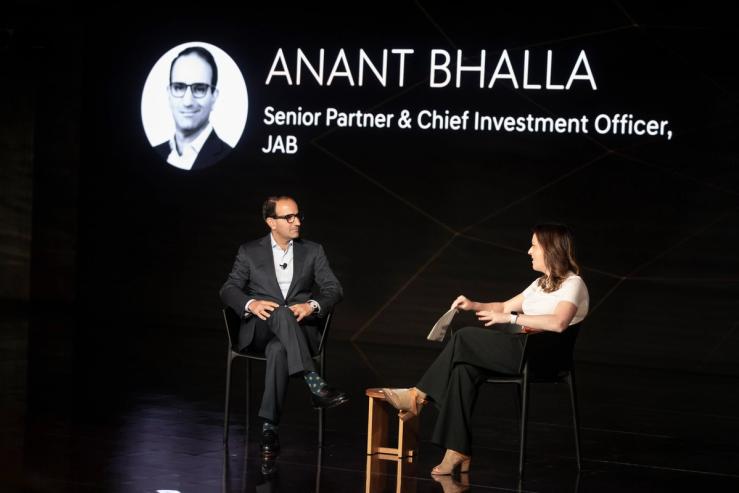The Scoop
JAB Holding, the largest investor in Krispy Kreme and Pret A Manger, is buying a life insurer, joining one of finance’s hottest trades.
JAB will pay just over $3 billion for Prosperity Life, which is owned by hedge fund Elliott Management, people familiar with the matter said.
Life insurance policies and related retirement products have become, surprisingly, the liveliest corner of finance. They bring in money today that can be invested for decades, making them catnip for Wall Street investment shops tired of traditional fundraising slogs.
Apollo, Blackstone, KKR, Blue Owl, and Brookfield have all bought or built insurance businesses, and rivals that don’t yet have an insurance arm are scrambling to buy one. TPG, which held talks with Prosperity last year, remains on the hunt, people familiar with the matter said.
Semafor reported in December that Elliott was shopping Prosperity, which manages about $25 billion of policyholders’ money, and that JAB was among the bidders. Elliott, better known as an activist hedge fund, bought Prosperity through its private-equity arm in 2019.
In this article:
Know More
JAB invests the fortune of Germany’s Reimann family, which founded the chemical giant Reckitt Benckiser, and is best known for backing consumer brands like Keurig Dr. Pepper and Einstein Bros. Bagels. But last year it hired a longtime life-insurance executive, Anant Bhalla, to build an insurance arm. It recently sold $2 billion of Keurig stock, though executives have said they remain committed to the consumer business.
Wall Street’s push into insurance has attracted scrutiny from regulators, who worry firms will put pensioners’ money into riskier investments. Investors get to keep any profits beyond what they have promised policyholders, which creates incentives to take more risk. Insurers owned by private investors tend to own more complex securities and fewer corporate and government bonds than traditional insurers, according to AM Best, a ratings agency for the industry.
At the Semafor Business Summit in June, Bhalla said that between $5 billion and $10 billion of JAB’s money would anchor an insurer with $100 billion in assets and promised a more conservative approach. “Every day I’ll wake up and say ‘I have to take care of the $100 billion because if I don’t, I’m going to lose my own $10 billion,’” he said.
Bhalla knows Prosperity well: It made a hostile bid that put his previous company, American Equity Life, in play in 2022. AEL was eventually sold to Brookfield.
Liz’s view
Regular readers of Semafor Business know I’m fascinated by Wall Street’s push into insurance, and I still think it ends with a blowup or two.
Insurance money is just too tempting and too easy to raise: Apollo’s retirement arm, Athene, brought in $71 billion last year selling annuities through brokers and financial advisers. That’s three times the size of Apollo’s biggest buyouts fund, and raised without the hassle and expense of a global pass-the-hat tour.
All that money has to be invested, so now we live in a world with home-heat-pump-installment-plan bonds. It’s a long way from stodgy insurance companies buying IBM bonds.
Maybe those investments are fine, and giving ordinary people access to more profitable investments could help fix the retirement crisis. But it’s hard not to think these new entrants are solving for something different than Prudential and MetLife have been solving for since the 19th century. They’re dealmakers looking for money, and they see a pile of it in insurance.
JAB has a chance to do things differently. Insurance is a long game, and while everyone on Wall Street is chasing “permanent capital” — money that essentially never has to be returned to investors or creditors — JAB has it. It’s investing a family fortune that is more than a century old and answers only to itself.
Bhalla told me last year that the firm won’t chase the fee “drug” that many investment managers emphasized as they grew bigger, went public, and needed to show steady profits for their shareholders. “Insurance is a good business if it’s private,” he said.
Room for Disagreement
State insurance regulators are pretty good at their jobs; about 30 insurers have failed this century, compared to 572 banks at last count. And when one does go under, policyholders tend to be fine. “In the last 30 years, there hasn’t been a single [retiree] under a group annuity contract that’s missed a payment or had a benefit cut,” Preston Rutledge, a former assistant Labor secretary for employee benefits, told Semafor last year.
Notable
- Private equity-backed annuities are paying Shohei Otani’s huge salary in Los Angeles. — Fortune
- The cautionary tale of 777 Partners, which funnelled insurance money into risky investments that enriched its owners.


